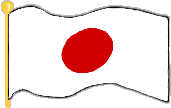ごんべさんの赤ちゃん
(Gonbei-san no aka-chan)
This hand play song is to the tune of "The Battle Hymn of the Republic".
"The name 'Gonbei' or 'Gonbee' is a kind of pronoun for a random person, like 'some guy' or 'John Doe'. When people don't know the name of someone (male), they would say 'Gonbei Non-family-name' (名無しの権兵衛 [nanashi-no Gonbei])." -Sadao
ごんべさんの赤ちゃん
(Gonbei-san no aka-chan)
Gonbei's Baby
Action Song
Action Song
(Japanese)
(English)
ごんべさんの赤ちゃんがカゼ 引いた
ごんべさんの赤ちゃんがカゼ引いた
ごんべさんの赤ちゃんがカゼ引いた
そこで あわてて シップした.
Gonbei's* baby caught a cold
Gonbei's baby caught a cold
Gonbei's baby caught a cold
Then he was cared for with a hot compress*.
Notes
*"John Doe"
**On the chest.
Learn more about Gonbei here.
*****
Pronunciation:
Gonbei-san no aka-chan kaze hitta
Gonbei-san no aka-chan kaze hitta
Gonbei-san no aka-chan kaze hitta
Sokode awatete shippu-sita.
*****
Author unknown.
Comments
Sadao Mazuka wrote the following about this song:
"The words are not from 'The Battle Hymn of the Republic'. And these are not the creation by the Japanese precisely. Then from what?
Maybe these are from the lyrics of 'John Brown's Body';
John Brown's body lies a-mouldering in the ground;
John Brown's body lies a-mouldering in the ground;
John Brown's body lies a-mouldering in the ground;
His soul is marching on.
John Brown is an important person in American history who was an instrumental figure in a riot just before the American civil war. In 1859, at Harper's Ferry he was arrested and executed by Robert E. Lee.
After a while, people sang the song 'John Brown's Baby' as a parody (in English):
John Brown's baby has a cold upon its chest
John Brown's baby has a cold upon its chest
John Brown's baby has a cold upon its chest
And they rubbed it with camphorated oil.
Maybe these are the roots of the Japanese song words.
There are many versions from the song 'The Battle Hymn of the Republic' here in Japan. For example:
'Tadpoles are the babies of a frog (お玉杓子は蛙の子)' [a children's song]
'A paean of friends (ともだち賛歌)' [a children's song]
'Commercial Song for Yodobashi-camera-shop (ヨドバシカメラの歌)'"
Sources:
World Folk Song
Wikipedia in Japanese
Wikipedia in English

Thanks!
Thanks!
Thanks and Acknowledgements
Many thanks to Sadao Mazuka for sharing this song with us, for translating it and for the commentary.
Arigato gozaimasu! 

























